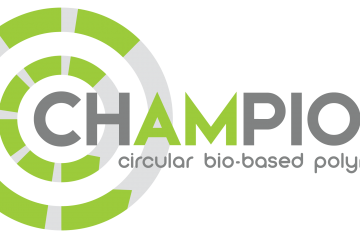Sustainability of supply chains: From trust to proof
The word sustainability is losing its credibility when associated to business. It is many times perceived as vague and general. Sustainability claims by companies need to be substantiated with concrete and specific actions; otherwise the claim may not be taken seriously by consumers. In complex supply chains, like the ones involving agricultural commodities from different origins, those actions should be fully and independently verifiable. Sustainability proofs are best provided by third party certification. Recent studies from SQ Consult show companies’ need to pick good quality certification. In this newsletter SQ Consult partner Sergio Ugarte discusses these studies with the objective to provide practical information on certification schemes for companies and to help governments in designing their sustainability strategies and obligations.
Why companies more and more choose for sustainability certification?
Business leaders and civil society have supported the establishment of a large number of sustainability certification schemes in the past two decades. These schemes help companies to monitor environmental and social practices of various sectors, such as agriculture, forestry, fisheries, textiles, carbon and water. They are also emerging in a range of new sectors such as mining and minerals. Some sectors are already including sustainability certification in specific legislation.
Consumers are aware that the products they have to choose from are produced in distant places under unknown conditions. Market preference for sustainable goods has become a stable trend in the last few decades. High-profile cases of contaminated food, child labour, animal welfare problems, deforestation and the collapse of fisheries and other resources have raised consumer concerns about how products are made or harvested. Companies also face challenges in assuring that their sources of supply will be available over the long term and that their businesses will still thrive. Sustainability certification is growingly being conceived by companies and consumers as an important part of the solution to these concerns and challenges.
But what makes companies decide for certification?
Typically, companies pass through four main phases when adopting sustainability certification as a core practice for their activities and products:
- Defensiveness to critics, for example NGOs attacks;
- Awareness of market opportunities or brand differentiation with respect to products sensitive to sustainability concerns, for example fair trade of coffee
- Risk management of their future supplies, as they become scarce or not legally allowed due to sustainability concerns;
- Creation of new business opportunities by making significant changes to the supply chains of their business sector.
The growing use of co-regulation
Supply chains for a single company may vary greatly in length and characteristics. For example, agricultural bulk commodities used in the production of many products are often sourced from multiple regions in the world. Some of these regions have high sustainability risks, and may face challenges with respect to land and water use, biodiversity protection, food prices, food availability, community rights or with respect to meeting of international standards regarding labour conditions. Sustainability certification is the growing method used to tackle those challenges.
Certification can bring even more rapid changes in production practices when integrated with public regulation. They can complement regulation by filing gaps and introducing mechanisms for adapting to technological and social change. This innovative approach is called “co-regulation”. However, co-regulation is not exempted from deficiencies. As we discussed in our June 2013 Newsletter “Co-regulation: Fashion or effective tool for the sustainability of global biomass supply chains?”, various lessons can be learned from current co-regulation experiences. Two of our recent studies finished in 2013 study for GIZ address these issues: “Recognition of private certification schemes for public recognition. Lessons learned from the Renewable Energy Directive” and “One size fits all? Assessing the sustainability assurance certification schemes in different risk contexts”
A third study, for NL Agency and finished this past November, “Monitoring certification schemes –scheme changes and cross-acceptance“, looks at how changes in certification schemes approved by the European Commission for biofuels certification affect their level of assurance. The study focuses on how these certification schemes are evaluated and monitored by the Commission to guarantee that the level of assurance and credibility of those officially approved schemes remain unchanged.
All these three studies focus on biomass supply chains for biofuels, soy and palm oil. These studies mainly conclude that the effectiveness of co-regulation shall be monitored. Otherwise, some bad quality certification schemes may end up applied in regions with weak governance. This combination opens the door for certified products that actually come from non-sustainable supply chains. These risks may be counterbalanced by good governance, but even when not, choosing a robust certification scheme is always the best choice to reach a high level of sustainability assurance in supply chains.
Betting on best quality certification
Certification quality depends on the criteria adopted by the certification scheme standard, the way the chain of custody is controlled, and the level of assurance offered by the scheme. Our fourth and most recently finished study: “Guidance for the selection of best quality voluntary standards systems for the certification of biomass, soy and palm oil" for the International Union for Conservation of Nature (IUCN) establishes practical guidance for companies in their process of selecting best quality certification schemes. This guidance document complements a Proforest publication reviewing several existing ‘benchmarking’ studies of certification schemes for biomass, soy and palm oil.
The following steps are identified for the selection of good quality certification:
- Identifying the schemes with most comprehensive criteria;
- Choosing a strict chain of custody method suitable to the characteristics of the supply chain;
- Selecting schemes with highest level of assurance;
- Calculating the cost and benefits of selected certification options;
- Selecting the best quality certification scheme for your sustainability ambitions.
The guidance ranks the quality of 10 certification schemes for the certification of food chains and for the certification of biofuels. Those certification schemes are shown in the next table.
Table: List of certification schemes compared
| Certification scheme | Coverage of RED mandatory criteria | Feedstock/ Chain of custody/ Geographic coverage | Full name of the certification scheme |
Multi stakeholders certification schemes
| ISCC | Full | All biomass/ All stages/ Global | International Sustainability and Carbon Certification Scheme |
| Bonsucro | Partial | Sugarcane/ All stages/ Global (focus on sugarcane regions) | Bonsucro EU Certification Scheme |
| RSB | Full | All biomass/ All stages/ Global | Roundtable on Sustainable Biofuels EU RED Scheme |
| RTRS | Full | Soy/ All stages/ Global (focus on soy regions) | Roundtable on Responsible Soy EU RED Scheme |
| NTA8080 | Partial | All biomass/ All stages/ Global | Netherlands Technical Agreement 8080 Certification Scheme |
| RSPO | Full | Palm oil/ All stages/ Global (focus on palm oil regions | Roundtable for Sustainable Palm Oil Scheme |
| Proterra | NA | All biomass for food chains/ All stages/ Global |
Proterra Certification System |
Industry Associations certification schemes
| 2BSvs | Partial | All biomass/ All stages/ Global | Biomass Biofuels Voluntary Scheme |
| REDcert | Full | All biomass/ All stages/ EU 28 + selected countries | Renewable Energy Directive Certification System |
Company owned certification schemes
| Greenergy | Partial | All biomass/ All stages/ Global (for Greenergy supply) | Greenergy Brazilian Bioethanol Verification Programme |
On the basis of our analysis, RSB, Bonsucro, and NTA8080 are the certification schemes that rank highest for the certification of both, environmental and socio-economic sustainability criteria. RSB ranks as the highest quality scheme as it covers more sustainability criteria, with greater detail, and with more breadth in terms of level of assurance than any of the other certification scheme. Bonsucro, NTA8080, RTRS and RSPO also meet a good level of quality in all comparisons made. ISCC, Proterra and Greenergy can be considered to be of overall medium quality. REDcert and 2BSvs fall in the low quality segment, with 2BSvs having the overall lowest quality among all certification schemes compared.
A clear risk undermining the credibility of sustainability certification is the current practice of some certification schemes of accepting certificates issued by lower quality schemes certifying upstream activities in the supply chain. Upstream activities basically involve the production of the raw bulk commodities. This practice may easily result in a misleading perception of specific sustainability criteria, because upstream activities are always the most vulnerable to not meeting sustainability criteria. This is potentially the case for biofuels entering the EU market with ISCC certification. ISCC accepts under certain conditions certificates issued by all other schemes approved by the European Commission. For example, 2BSvs do not cover any sustainability criteria on biodiversity protection or on any social related sustainability criteria. Therefore swapping a 2BSvs certificate into ISCC at the end of a supply chain may lead to misleading perception regarding what has really been certified.
Recommendations for best quality sustainability certification of supply chains
Based on our studies Following recommendations are made to improve the sustainability of supply chains through the use of certification schemes.
| Market player | Recommendations |
| Companies |
|
| Certification schemes |
|
Lessons learned from biomass certification. Looking ahead to certification of other bulk products
- Actual sustainability is reached only when both environmental and socio-economic sustainability criteria are properly addressed and verified. It is therefore of critical importance that any legislation involving sustainability certification includes both criteria.
- Co-regulation processes, like the one implemented by the European Commission for biofuels sustainability are a good example on how to enhance changes in a sector. These co-regulation processes should set defined and strict procedures for the approval of valid certification schemes though, in particular regarding their level of assurance. This is still pending of improvement for biofuels in Europe, especially for the approval of scheme changes.
- Acceptance of certificates from other certification schemes should be done only on a level playing field in the content of sustainability criteria and in the level of assurance of both certification schemes. Otherwise the possibility of a misleading perception of sustainability exists.
- Monitoring the performance of certification schemes is important and should be given especial importance to guarantee effectiveness. The role of monitoring should be done under clear quality standards like ISEAL’s Code of Good Practice for Setting Social and Environmental Standards.
- Regulators could further improve the effectiveness of co-regulation processes by facilitating effective communication between relevant actors (e.g. certification schemes, auditing bodies, civil society).
This newsletter is based on recent work conducted by SQ Consult; more information on these studies is available at request. SQ Consult is currently developing different approaches to sustainability management of different supply chain and successful company CSR programs. The author thanks his colleagues Jinke van Dam, Vincent Swinkels and Mirjam Harmelink for their valuable contributions.




